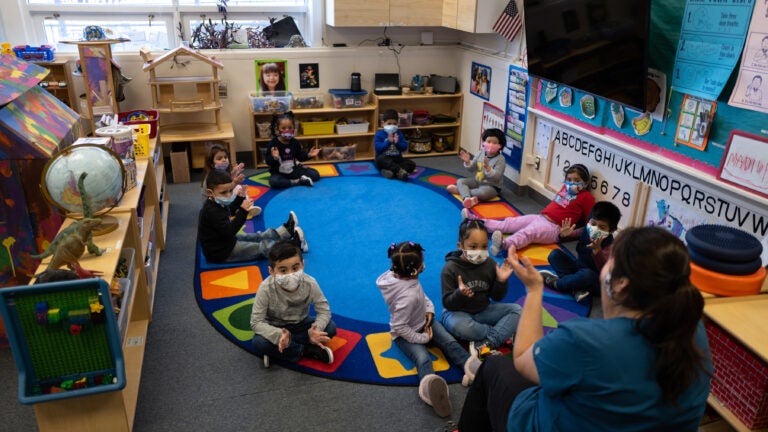Coronavirus
The number of cases among children are at an all-time high since the beginning of the pandemic, experts say.
The American Academy of Pediatrics, or AAP, and the Children’s Hospital Association, or CHA, released a report last week that found that there were 94,000 COVID-19 cases among children in the prior week, making up 15% of the reported weekly COVID-19 cases.
Dr. John Brownstein, chief innovation officer at Boston Children’s Hospital and professor at Harvard Medical school, spoke on ABC News Monday evening to express concerns about an increase in COVID-19 cases among kids as the so-called delta variant takes hold.
“I am very concerned about this rapid, exponential rise in kids; it’s something we haven’t seen throughout the pandemic,” Brownstein said.
Rate of hospitalization has also increased significantly, Brownstein says, almost four times as high as it was in July. Although children who contract COVID-19 tend to experience milder symptoms, they are still susceptible to side effects such as long COVID.
Vaccinations are still unavailable for those under the age of 12 as the U.S. Food and Drug Administration, or FDA, has yet to authorize the vaccine for young children, even on an emergency basis. The AAP has called on the FDA to approve the vaccine faster for 5- to 11-year olds as case numbers in children rapidly rise.
The authorization has not come yet because trials are still ongoing for both the Moderna and Pfizer vaccines, according to Brownstein. The FDA has requested additional safety data in order to ensure the safety of the vaccines for the young population.
“We have to remember, the risk calculation for our kids is different … We want to make sure that the safety profile for these vaccines are good so that we’re giving our kids the right vaccines,” Brownstein said.
Brownstein predicts the FDA will give emergency authorization for vaccines for that age group by October or November.
With children looking to return to school in-person in the fall, schools are being provided with mitigation strategies to try to prevent the spread in classrooms. Advice from Brownstein included using higher-grade masks, social distancing, and COVID testing as well as getting staff at schools fully vaccinated.
“We have a lot of tools at our disposal and we’re going to see surges in communities,” Brownstein said. “So it’s unfortunately going to be on schools to figure out how to layer all these interventions together to make sure we can keep our kids safe and really in school for the duration of the year.”
COVID-19 cases are on the rise, on average about 84,000 cases per day nationwide. However, vaccines have proven effective as reports show that approximately 99% of hospitalizations and deaths have been among those who are unvaccinated. Brownstein said that the challenge now is to communicate the effectiveness of the vaccine to those who are hesitant to receive it.
“The more individuals we can get vaccinated, the more we can bring this pandemic to a close,” he said. “The more we can get the increase in vaccination, the less chances we’re going to see that fall surge we’re all concerned about.”
Watch Dr. Brownstein‘s full appearance below:
Newsletter Signup
Stay up to date on all the latest news from Boston.com






